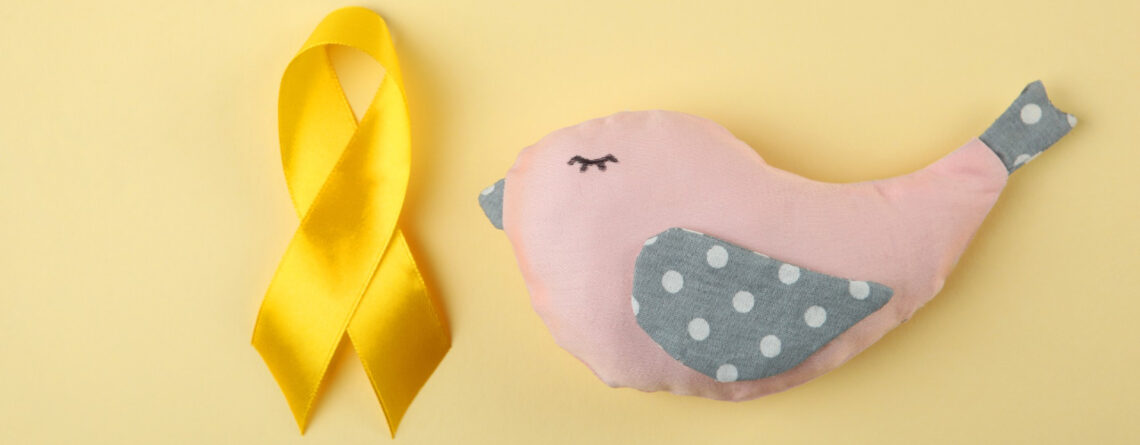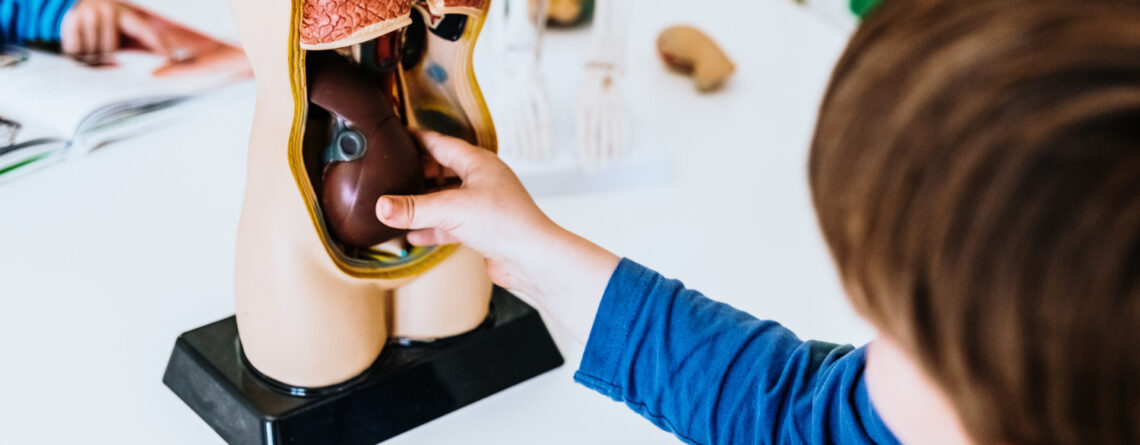Kidneys are vitally important paired bean-shaped organ located outside peritoneum. The main function of kidneys is to filter and purify blood, maintain water-salt balance, and produce urine. There are many kidney diseases that can damage this organ and cause disability or even death. One of these lesions are kidney tumors.
Kidney tumors can be benign or malignant, can affect one kidney or two at once. Among all oncological diseases of childhood, kidney tumors account for up to 20%, which makes them a fairly widespread problem. The child's age, race, gender do not affect the prevalence of this disease.

If you are left alone with a diagnosed kidney tumor in your child or a suspicion of such and do not know where to start – feel free to seek help from doctors of Pediatric Oncology Department at Maimonides Multidisciplinary Medical Center. Our specialists will help to understand the situation, to make up an effective plan for follow-up examination in the shortest possible time and treatment plan with the most modern drugs and procedures application. Asking as for help, you will receive Israeli template medical services without leaving borders of Ukraine.
It is no secret that oncological diseases treatment is expensive, and often necessary help for children is not provided due to limited financial capabilities of patient's family. We took care of this and made available financial assistance for sick children, which can be spent on diagnosis or treatment. Maimonides Medical Center works under the patronage of “Keren Or for our Child” the Charitable Foundation, which takes over part of costs or the entire necessary amount, depending on situation.
Our clinic closely cooperates with the best Israeli oncology centers. Children's oncology project of Maimonides Medical Center is headed by an Israeli specialist Dr. Serhiy Postovsky. Together with the head of Pediatric Oncology Department, Dr. Yury Tymoshchuk, he manages all medical cases directly from Israel. This approach is unique, because in Ukrainian conditions, every patient can get access to modern and effective Israeli medicine.
The direct advantage of Pediatric Oncology Department in our institution is highly qualified doctors . All of them have repeatedly interned on the basis of the best oncology children's centers and have practical experience of communicating with seriously ill children and their relatives, so they will be able to find connection with each child and explain situation in an accessible way. In treatment process and diagnosis, specialists are guided by global protocols accarding to evidence-based medicine, while absolutely not using one examination template or treatment scheme for everyone. The approach to each personal clinical situation is individual . Therapy is selected taking into account child’s age, general state of his health, final specified histological diagnosis, stage of disease, its possible complications, patient’s and his parents or custodians wishes.
Kidney tumors are complicated, but with the right approach and timely treatment, they are completely curable diseases in children . In order to provide qualified medical care to such small patients in necessary volume, Pediatric Oncology Department of Maimonides Medical Center employs a whole multidisciplinary team. Oncologists, surgeons, nephrologists, urologists, radiation therapists, chemotherapists, rehabilitators, psychologists and other specialists provide assistance to every child with an oncological diagnosis. This ensures provision continuity of all necessary medical services – from initial stages of diagnosis to completion of rehabilitation after kidney pathology complex treatment.
If certain diagnostic equipment or specialist is not available at Maimonides Center, patient, together with parents or custodians, is referred to affiliated medical centers or our Israeli partner clinics.

What are the symptoms of kidney tumors in children?
Some tumor lesions of kidneys can be detected immediately after child’s birth, others do not manifest themselves until late stages of disease. One way or another, a kidney tumor detected at any stage requires treatment, because it can cause serious complications, often even incompatible with life. Of course, the earlier neoplasm is detected, the higher chances of a full recovery. Therefore, parents should know about symptoms of disease:
- pain in abdomen;
- change in color of urine (turbidity, "beer" color);
- blood impurities in urine;
- tumor that can be felt in abdomen;
- bulge in abdomen that becomes noticeable;
- loss of appetite, weight loss;
- constant nausea, vomiting;
- prolonged fever;
- thirst;
- defecation act violation.
Often, kidney tumors are discovered quite by accident during examination for other reasons or during a preventive examination. One way or another, the earlier disease is detected, the better prognosis.
Types of kidney tumors in children
The following types of kidney tumors are most common in children:
- Nephroblastoma (Wilms tumor) is an aggressive and malignant tumor that mainly affects young children. Tumor grows from immature embryonic cells, rapidly progresses and metastasizes to nearby and distant organs. Very often, tumor is combined with other congenital malformations of internal organs. Exact causes of disease development are unknown, but a genetic predisposition to Wilms' tumor development is being traced. Nephroblastoma is the most common form of kidney cancer among children and accounts for up to 85% of all malignant kidney lesions cases in them. In the vast majority, tumor is unilateral, although in 5% of cases there is a bilateral lesion.
- Cystic nephroma is a benign neoplasm that develops from embryonic kidney tissues. The disease has a benign course, if it does not reach significant sizes and does not interfere with normal kidney functioning, therefore it is found mainly by chance. It occurs quite rarely and it is diagnosed, as a rule, in childhood.
- Mesoblastic lymphoma of kidney is a malignant disease with lymph nodes and kidneys damage. The disease is rare, it is diagnosed in no more than 1% of all lymphomas in children. As a rule, newborns and young children are sick.
- Nephrogenic adenofibroma is a benign embryonic tumor that can transform into a malignant one over time. Occurs in young children.
- Ossifying renal tumor of infancy (ORTI) is a mesenchymal benign embryonal tumor that can become malignant over time. It occurs mainly in children aged 1.5 years. This is a rather rare pathology.
- Rhabdoid tumor is a very dangerous and aggressive tumor that occurs in early childhood, it is difficult to treat, there is still no generally accepted treatment strategy and treatment protocols.
- Clear cell sarcoma of kidney is the most common form of kidney cancer among adults, it is relatively rare in children. The disease is very aggressive, metastasizes early, grows quickly. Treatment success and prognosis depend entirely on the stage at which tumor is diagnosed.

Diagnostic methods of kidney tumors in children
Any diagnostic process begins with complaints establishment of patient or his parents, examination and other objective examination methods, disease anamnesis and anamnesis of life collection. During this process it is possible to make assumptions about congenital or acquired nature of disease, establish a preliminary diagnosis and make up a further detailed plan of laboratory and instrumental examination.
Diagnostic complex necessarily includes various general clinical and biochemical blood and urine tests. This makes it possible to determine kidneys condition, to suspect a violation of their work, if it is present.
Irreplaceable methods of diagnosis when a kidney tumor is suspected are various methods of medical imaging that allow us to see tumor, determine its size, localization, degree of spread, and also make conclusions about tumor nature. Such modern diagnostic methods as ultrasound, radiography, CT, MRI with and without contrast, PET-CT, PET-MRI are widely used.
In order to establish the diagnosis accurately, we performe tumor biopsy with followed histological, immunohistochemical, and molecular genetic research. All therapeutic tactics will depend on this results. We send all tissue samples obtained after biopsy to the best pathomorphological centers of the USA, Germany, and Israel for revision. Thanks to such double "molecular checks", we are absolutely sure of the correctness of the diagnosis and further treatment tactics.
All procedures, if they are accompanied by pain or fear, are performed in children under sedation or general anesthesia, so that our little patients do not feel any discomfort during, for example, a biopsy or an invasive examination method.
Based on received data, doctor formulates the main diagnosis , establishes concomitant pathologies and their complications. The type of tumor, its localization, degree of spread, stage of disease must be indicated. Based on these data, the entire treatment plan is subsequently formed.

Kidney tumors treatment in children
Treatment of kidney tumors is usually complicated and includes various combinations of such basic methods as surgery, chemotherapy, and radiation therapy. In some cases, treatment can be supplemented with other modern methods – target therapy, immunobiological drugs application, hormone therapy , and other experimental methods.
The main stage of radical treatment for patient with kidney tumor is malignant lesion surgical removal . Depending on tumor type, its distribution, size, urological surgeons choose different access methods to diseased kidney. In most cases, surgery can be performed laparoscopically without large skin incisions and significant tissue trauma. Sometimes, however, it is necessary to perform open surgeries when tumor has reached significant sizes.
The main part of surgeries performed by our specialists is organ-preserving. That is, doctors manage to remove tumor from its bed with the help of modern equipment, while preserving child's kidney completely. Sometimes it is necessary to perform a nephrectomy (kidney complete removal together with tumor). As a rule, even after such an intervention, patient completely recovers, as another healthy kidney fully compensates lost organ’s work.
If two kidneys are affected by tumor process and they need to be removed in order to save child's life, then such complicated surgeries are performed with simultaneous preparation of small patient for replacement therapy – programmed hemodialysis . In future, these babies will be offered a kidney transplantation from a family or non-family donor, which will allow them to return to a normal lifestyle and not depend on "artificial kidney" device.
Chemotherapy is almost always used in complex treatment of patients with malignant kidney lesions. Courses can be prescribed before planned surgery to reduce tumor size and facilitate technical performance of future intervention. Chemotherapy is also prescribed after surgery in order to finally destroy those malignant cells that may have remained after surgery and prevent disease recurrence. All drugs we use for chemotherapy in children are manufactured by leading global pharmaceutical companies, which makes them effective and relatively safe. Doctors select drugs according to the main diagnosis, child’s age, his individual characteristics. Thanks to this approach, side effects after chemotherapy courses are minimal.
Radiation therapy can be used in a complex treatment or prescribed as a separate treatment method. As a rule, radiation therapy is used in courses after radical treatment and surgical tumor removal. This allows us to get a good result from complex therapy, completely destroy tumor cells and prevent relapses in future. Sometimes radiation can be used before surgery when tumor is large and cannot be removed technically. As a result of ionizing radiation impact, tumor shrinks, which makes it operable.
Specialists of Radiation Therapy Department select treatment course, radiation regimen, and total radiation dose, according to each individual child. This makes it possible to achieve a good therapeutic effect and minimal side effects on other healthy organs and tissues. Our department is equipped with only modern devices , which allows for completely safe treatment of small patients.
On the basis of our partner Israeli oncology centers, clinical trials are constantly conducted to study experimental drugs or innovative treatment methods effectiveness. All our patients can participate in these studies absolutely free of charge. For some, this is a real chance for recovery, especially for those patients in whom all standard treatment methods have proven ineffective or the disease has relapsed.
